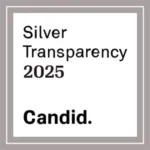May 11, 2016
BY JASON PRAMAS @JASONPRAMAS
General Electric tries to cheap out on cleaning up its PCB apocalypse on the Housatonic River
In 1929, Swann Chemical Company began commercially producing polychlorinated biphenyls for industrial use as an electrical insulator and as a coolant. PCBs were immediately a huge success, and Monsanto bought Swann six years later. From 1932 to 1977, the big General Electric plant in Pittsfield, Mass used large quantities of the chemical in manufacturing electrical transformers and other products. According to the Environmental Protection Agency, as much as 600,000 pounds of PCBs was dumped into the adjacent Housatonic River and the surrounding soil over that time. In 1979, the EPA banned PCBs as a definite animal carcinogen and a probable human carcinogen. One which can take hundreds of years to naturally degrade to nontoxic levels.
As GE finished winding down its Pittsfield operation over the next couple of decades—ultimately eliminating 13,000 mostly unionized jobs, and driving a spike through the economic heart of the Berkshires—state agencies and the EPA initiated a number of regulatory actions culminating in a 1997 proposal by the EPA to add the Housatonic site to the Superfund National Priorities List. After long negotiations, the company managed to stop the site from being tarred with the Superfund designation and in 1999 agreed to what the EPA called a “Consent Decree” to cleanup PCBs in the Housatonic from the former site of GE’s Pittsfield plant to a couple of miles downriver in a first phase that has since been completed. And then to cleanup what was termed “Rest of River” in a second phase.
Having spent $100 million on the first phase (as part of the initial Consent Decree settlement), GE is now fighting to be able to cheap out on cleaning up the rest of the river. Mainly by trying to save the estimated $250 million cost of shipping PCB-contaminated river sediment and surrounding soil by rail to a huge toxic waste storage facility in Texas, as demanded by the EPA’s current “Rest of River” plan, via an alternative proposal for three new dumps in Western Mass. Two of which are right near the Housatonic. Yet are somehow expected to store a chemical infamous for its ability to leech out of dumps, spread miles underground—possibly right back to the river it was dredged from—and also evaporate and travel long distances in the air. GE appealed the EPA’s plan last October. A move that could land the whole affair in the US Court of Appeals in Boston, and drag a process that will take at least 13 years to complete out even longer.
Local communities are understandably furious, and river advocates have started holding protests at the proposed GE dump sites. It should be understood that the effects of PCBs on the environment are dire. And that so-called Rest of River cleanup is meant to fix some (but nowhere near all) of the damage done up to 140 miles downstream through Western Mass and Connecticut into Long Island Sound. PCBs—found in the Housatonic at levels far above the EPA safety threshold—not only raise cancer risks in humans and animals alike, but also cause direct immune, reproductive, endocrine, and neurological effects. With children being the most vulnerable human population.
But even the planned EPA approach to Rest of River cleanup on the Housatonic—which activists think is woefully insufficient—is still too expensive for GE’s taste at an estimated $613 million. The corporation won’t rest until it knocks at least $250 million off the top. And damn the environmental consequences.
Meanwhile, it remains to be seen whether—given the buzz coming from Western Mass—there might be a connection between the Housatonic situation and the $270 million in public funds, services, and tax breaks that Gov. Charlie Baker and Boston Mayor Marty Walsh have agreed to lavish on GE to induce them to move their headquarters to the Hub. But one has to wonder—in light of the recent investigation by the International Business Times showing that GE employees and the employees of GE’s lobbying firms donated nearly $1 million to the NY Congressional delegation over last three election cycles—why so many Empire State pols just happened to stand down from the fight to stop EPA approval of GE’s halting its dredging of PCBs in the Hudson River Valley last year? And if a scheme like that could happen one state over, why couldn’t it happen here?

Apparent Horizon is syndicated by the Boston Institute for Nonprofit Journalism. Jason Pramas is BINJ’s network director.
Copyright 2016 Jason Pramas. Licensed for use by the Boston Institute for Nonprofit Journalism and media outlets in its network.










